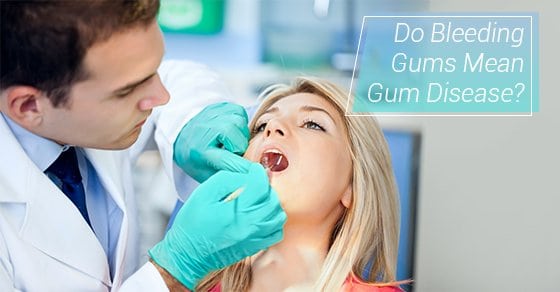You no doubt understand the importance of proper oral health. Brushing your teeth, flossing and visiting your dentist for regular checkups are all part of a good plan to keep your pearly whites in good repair.
But if, despite your best efforts, you notice blood on your gums, do you know what that might mean? It’s definitely not something that you should overlook because it is a sign that you need to see your dentist right away. Indeed, bleeding gums can be an early symptom of gum disease, and the sooner you address the issue, the better.
Read on to learn about bleeding gums and what this scenario might mean.
What it Means
If you notice blood on your gums when you’re either brushing your teeth or flossing, you might have excess plaque in the area of your mouth where your gums and your teeth meet. And this is an early stage of gum disease. But don’t be too quick to self-diagnose since bleeding gums could be a symptom of other sorts of problems.
Other Possible Reasons
While the first thing you might think about if your gums bleed is gum disease, it could be a symptom of something as simple as brushing your teeth too vigorously, hormonal alterations due to pregnancy, poor flossing technique, dentures that don’t fit properly, blood thinners, scurvy, or deficiency of vitamin K. There’s also a possibility of more severe health problems – patients diagnosed with leukemia, for instance, may notice bleeding around their gums.
Get it Checked Out
In order to be sure of the reason for your bleeding gums, you need to contact your dentist to make an appointment as soon as possible. He or she will assess the situation, diagnose what it is, and treat it. When you go to your dentist appointment, your dentist or periodontist will consider your medical history, look at findings from a thorough exam and assess x-rays to figure out how best to treat your oral health issues.
So if you’re wondering if bleeding gums are an early sign of gum disease, the answer is…perhaps. While it could suggest that you have gum disease, there are many other potential causes. Proper diagnosis is the only way you’ll be able to know for sure if you have gum disease. And if you do have gum disease, your dentist will know how to treat the problem so that you can improve your oral health.
